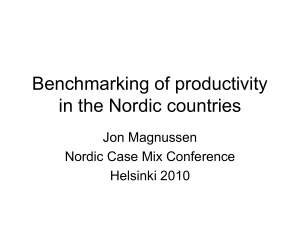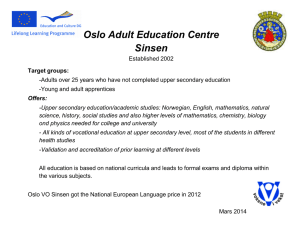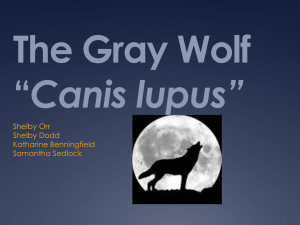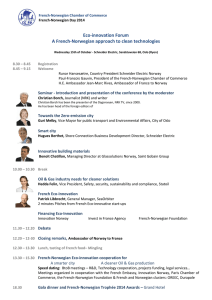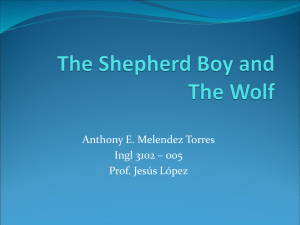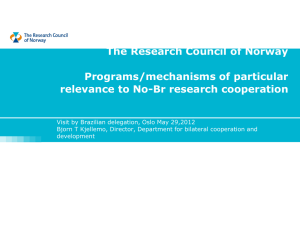The precarious situation for wolf conservation draws attention to a
advertisement
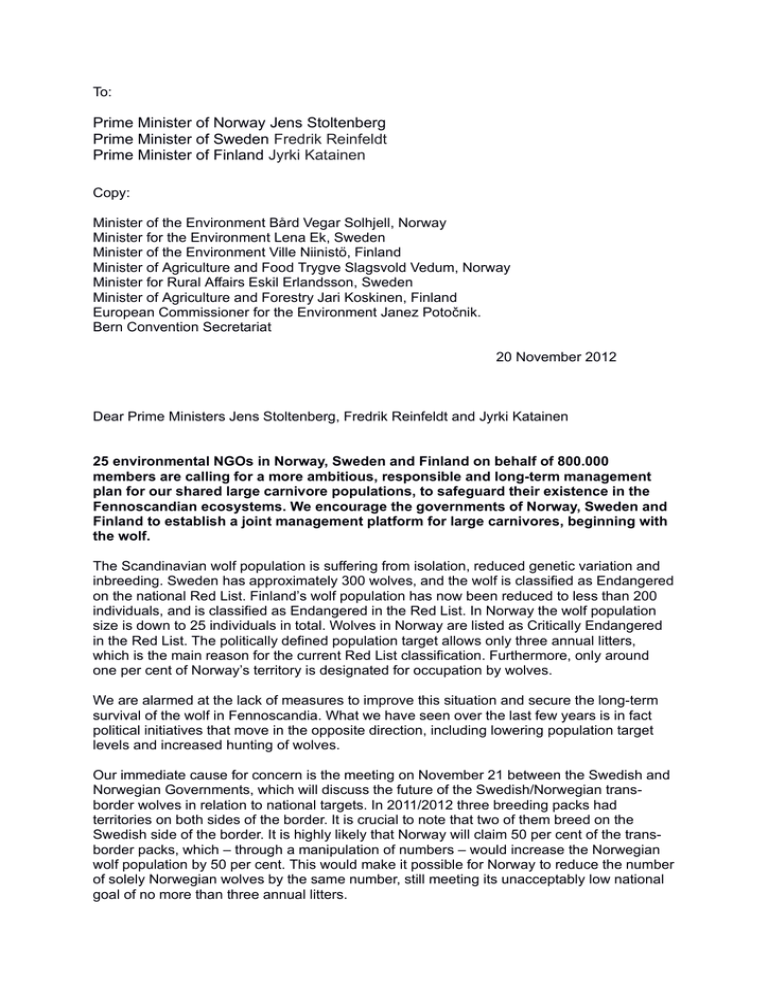
To: Prime Minister of Norway Jens Stoltenberg Prime Minister of Sweden Fredrik Reinfeldt Prime Minister of Finland Jyrki Katainen Copy: Minister of the Environment Bård Vegar Solhjell, Norway Minister for the Environment Lena Ek, Sweden Minister of the Environment Ville Niinistö, Finland Minister of Agriculture and Food Trygve Slagsvold Vedum, Norway Minister for Rural Affairs Eskil Erlandsson, Sweden Minister of Agriculture and Forestry Jari Koskinen, Finland European Commissioner for the Environment Janez Potočnik. Bern Convention Secretariat 20 November 2012 Dear Prime Ministers Jens Stoltenberg, Fredrik Reinfeldt and Jyrki Katainen 25 environmental NGOs in Norway, Sweden and Finland on behalf of 800.000 members are calling for a more ambitious, responsible and long-term management plan for our shared large carnivore populations, to safeguard their existence in the Fennoscandian ecosystems. We encourage the governments of Norway, Sweden and Finland to establish a joint management platform for large carnivores, beginning with the wolf. The Scandinavian wolf population is suffering from isolation, reduced genetic variation and inbreeding. Sweden has approximately 300 wolves, and the wolf is classified as Endangered on the national Red List. Finland’s wolf population has now been reduced to less than 200 individuals, and is classified as Endangered in the Red List. In Norway the wolf population size is down to 25 individuals in total. Wolves in Norway are listed as Critically Endangered in the Red List. The politically defined population target allows only three annual litters, which is the main reason for the current Red List classification. Furthermore, only around one per cent of Norway’s territory is designated for occupation by wolves. We are alarmed at the lack of measures to improve this situation and secure the long-term survival of the wolf in Fennoscandia. What we have seen over the last few years is in fact political initiatives that move in the opposite direction, including lowering population target levels and increased hunting of wolves. Our immediate cause for concern is the meeting on November 21 between the Swedish and Norwegian Governments, which will discuss the future of the Swedish/Norwegian transborder wolves in relation to national targets. In 2011/2012 three breeding packs had territories on both sides of the border. It is crucial to note that two of them breed on the Swedish side of the border. It is highly likely that Norway will claim 50 per cent of the transborder packs, which – through a manipulation of numbers – would increase the Norwegian wolf population by 50 per cent. This would make it possible for Norway to reduce the number of solely Norwegian wolves by the same number, still meeting its unacceptably low national goal of no more than three annual litters. At this point, discussions on wolf management between our countries should not focus on details such as principles and procedures for counting the populations in each of the Nordic countries. We urge our Governments to take this opportunity to start with the right perspective, by initiating a process to develop a common framework with clear management principles for the Fennoscandian wolf population. These principles should - underline the shared responsibility between Norway, Sweden and Finland, and aim to strengthen management at national level in such a way that it enables the achievement of favorable conservation status for our shared wolf population. - demonstrate the urgent need for Norway to extend its responsibility for the shared Scandinavian wolf population, by increasing its population target. - include safeguarding genetic contact between the Scandinavian and Finnish-Russian wolf populations, which is politically restricted today. It is our conviction that a shared management framework, based on the above principles, is crucial for the future survival and well-being of the Fennoscandian wolf population as well as for our Governments’ adherence to international obligations and responsibilities. We thus call upon the Governments of all the three Nordic countries to take bold, responsible and concerted action before it is too late. We look forward to Your kind response. Yours sincerely, Nina Jensen Generalsekretær/CEO WWF Norway Mikael Karlsson Ordförande/Chair Naturskyddsföreningen Swedish Society for Nature Conservation Jari Luukkonen Suojelujohtaja/Conservation Director WWF Finland Arne Flor Leder/Chair Foreningen Våre Rovdyr The Norwegian Carnivore and Raptor Society Håkan Wirtén Generalsekreterare/CEO WWF Sweden Risto Sulkava (sign.) Puheenjohtaja/Chair Suomen luonnonsuojeluliitto The Finnish Association for Nature Conservation Maren Esmark Generalsekretær/CEO Naturvernforbundet Friends of the Earth Norway Roger Olsson Ordförande/Chair Svenska Rovdjursföreningen The Swedish Carnivore Association Leo Stranius Pääsihteeri/CEO Luonto-Liitto The Finnish Nature League Arild Hermstad Leder/CEO Framtiden i våre hender The Future in our hands Dennis Kraft Ordförande/Chair Svensk Ornitologisk Förening Bird Life Sweden Patrik Eriksson Kampanjchef/Program Director Greenpeace Norden Greenpeace Nordic Kurt Oddekalv Leder/Chair Norges Miljøvernforbund Green Warriors of Norway Salomon Abresparr Ordförande/Chair Fältbiologerna Nature and Youth Sweden Aki Arkiomaa Toiminnanjohtaja/CEO BirdLife Suomi BirdLife Finland Silje Lundberg Leder/Chair Natur og Ungdom Nature and Youth Norway Christian Steel Generalsekretær/CEO SABIMA The Norwegian Biodiversity Network Kjetil Aa. Solbakken Generalsekretær/CEO Norsk Ornitologisk Forening Bird Life Norway Siri Martinsen Leder/Chair NOAH - for dyrs rettigheter NOAH – for animal rights Sven-Erik Alhem (sign.) Ledamot/Board Member Djurskyddet Sverige Animal Welfare Sweden Kari Rigstad Leder/Chair Norsk Zoologisk Forening The Norwegian Zoological Society Dag Bjørndahl Leder/Chair Aksjonen Rovviltets Røst Sven T. Røine (sign.) Nestleder/Vice Chair Bygdefolk for rovdyr Linn Krogstad (sign.) Leder/CEO Dyrebeskyttelsen Norge Animal Protection Norway Thomas S. Nielsen (sign.) Leder/Chair Turgleder


